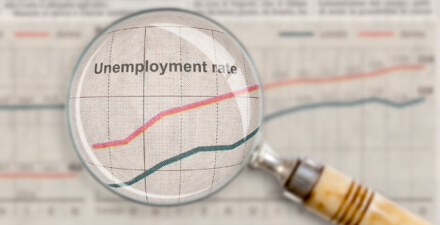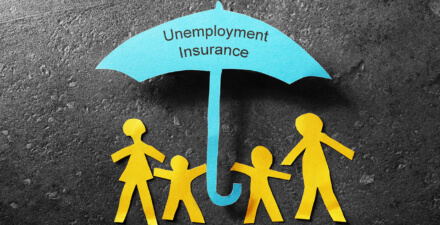Brad DeLong: Worthy reads on equitable growth, April 26–May 4, 2020
Worthy reads from Equitable Growth:
- This is the best review of Thomas Piketty’s new book, Capital and Ideology, I have yet seen. I can tell that the book annoyed Heather Boushey. If his last book was written for a very small audience (which at times felt like me and a few of my friends) and yet managed to attract a very large one, this book appears written for an equally small audience. The thread to grasp, I think, as people dive into the book is the connection between the data we are shown, how that leads us to see the world, and how that then influences our attempts to change it. Read Heather Boushey, “Which Side Are We On?,” in which she writes: “Piketty … presents the economics profession with a clear challenge … part of the problem or part of the solution … This time, he very much wants to influence policymakers … He puts forth a slew of ideas to reconfigure our national economic data—proposing that nation-states cooperate to compile a public financial register that would give political leaders the tools to assess the distribution of wealth and its movement over time, correctly measure the depreciation of “natural capital” so that we have the data to evaluate progress on climate justice, and rewrite national constitutions to require the publication of accurate annual estimates of the amounts of tax actually paid by different classes of income and wealth. These are all good ideas to consider—and ones that governments can easily begin to do. I fear, however, that many of those in power will not heed his advice. The problem is that the audience … isn’t clear … I was shocked to not see the words “political science” until over halfway through the book. On the other hand, the book isn’t written for a general readership, or even politicians and policymakers … The problem is that Piketty thinks his readers have all the time in the world. It isn’t until chapter 11 that Piketty tells us that social democracy suffers from both intellectual and institutional shortcomings regarding social ownership, education, the nation-state, and how to tax wealth. Having made this point, he starts to explain his agenda … over the course of the remaining 500 or so pages.”
- A very, very good piece on how “austerity” in the past decade—especially in so-called “red states”—greatly weakened the ability of our unemployment insurance systems to do their jobs. Fixing them immediately would be good. Read Alix Gould-Werth, “Fool Me Once: Investing in Unemployment Insurance systems to avoid the mistakes of the Great Recession during COVID-19,” in which she writes: “The current disarray in state unemployment programs is not an accident. The Unemployment Insurance problems we face today were on full display during the Great Recession and result from decades of conscious choices by policymakers. Now, we should take a different path by: increasing the federal taxable wage base to the same level as the Social Security taxable wage base and indexing it to inflation to provide adequate resources for program administration; redesigning benefit extensions so that the program responds quickly and efficiently to macroeconomic changes; standardizing minimum benefit levels and durations that are generous enough to incentivize application.”
Worthy reads not from Equitable Growth:
- Jay Powell and his colleagues at the Federal Reserve have been a very welcome beacon of action in helping us deal with the coronavirus pandemic. Color me as profoundly and favorably impressed with how much thinking and acting they have done and are doing. Read Dion Rabouin, “The Fed’s expanded lending looks to help fill the holes PPP missed,” in which he writes: “While business owners have largely praised the federal government’s fast response and the good intent of the CARES Act, it has left much to be desired. The state of play: It is believed that one of the reasons for the Fed’s expanded lending under the Main Street facility is the struggles of the Paycheck Protection Program. What it means: With the Small Business Administration overwhelmed by demand and many small business owners unable to access funding, PPP has been plagued by bad news since even before it launched. Where it stands: ‘PPP was the right idea but it was intended to be a short-term measure and really needs structural changes that can, in addition to a major infusion of resources, give travel businesses and their workers a real chance to survive,’ Tori Barnes, executive VP of public affairs and policy at the U.S. Travel Association, said during a media briefing Thursday … By reducing the size of the loans it offers (which unlike PPP loans cannot be forgiven), the Fed’s Main Street program allows medium-sized businesses direct access to its seemingly bottomless supply of cheap capital through financial institutions that take on, at most, 15 percent of the risk while the central bank shoulders the rest.”
- It is now very clear that the Trump administration—and state governments that follow its lead—have no interest in a tight enough lockdown to get the caseload low enough so that testing, tracing, and isolating, as done in South Korea or New Zealand could be attainable. Read German Lopez, “The 4 plans to end social distancing, explained,” in which he writes: “The plans all say the United States needs more testing. But they differ on how much more … These plans are a bit scary. They show the United States is likely stuck with some level of social distancing for at least months and possibly a year or more … These plans carry some assumptions, because there’s still a lot about COVID-19 and the coronavirus we simply don’t know … These plans, then, are about trying to put forward the best ideas with the best information available … The plans generally all say that extreme social distancing, as most parts of the United States are practicing now, is needed to get Covid-19 cases low enough that it’s safe to resort to softer measures.”






